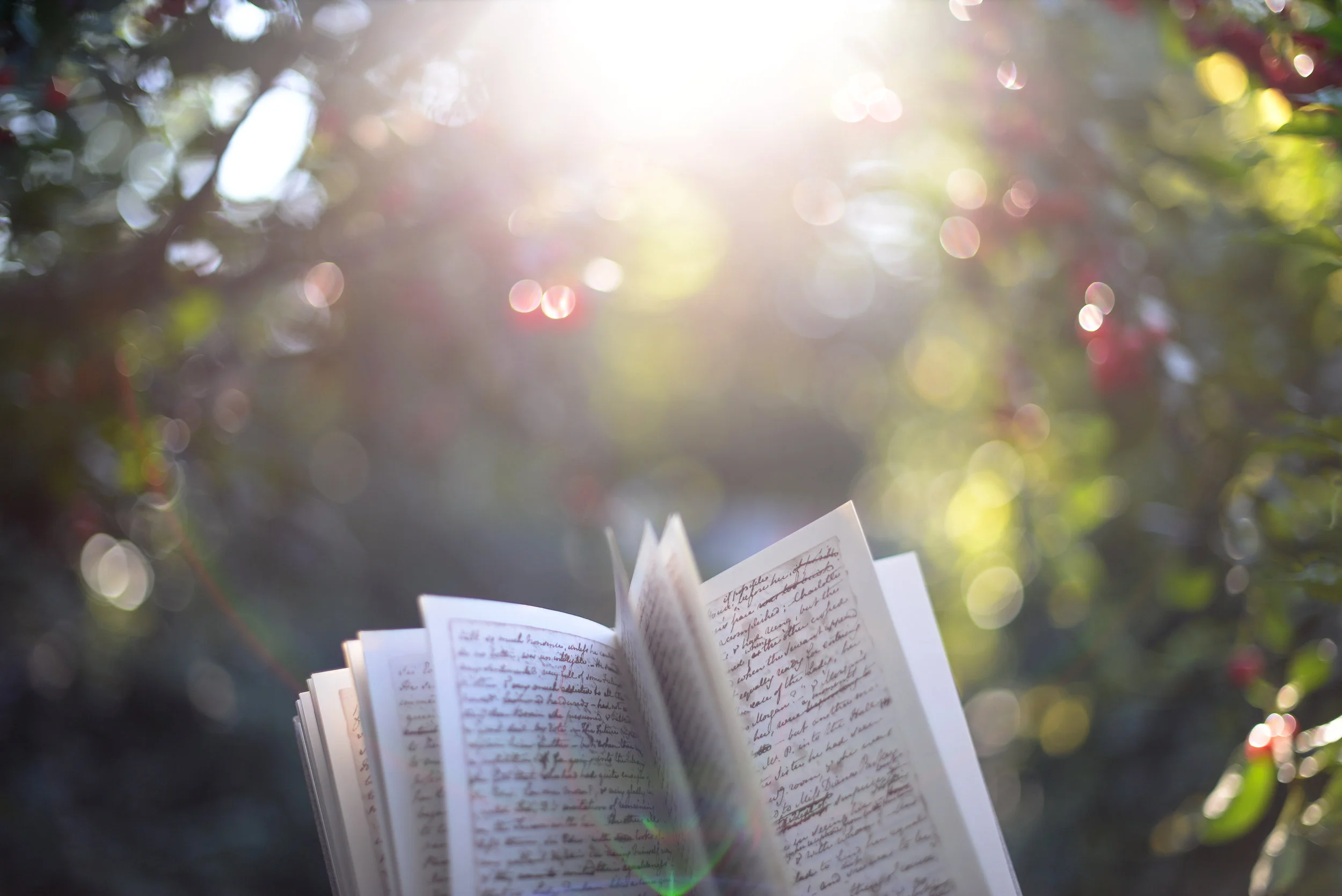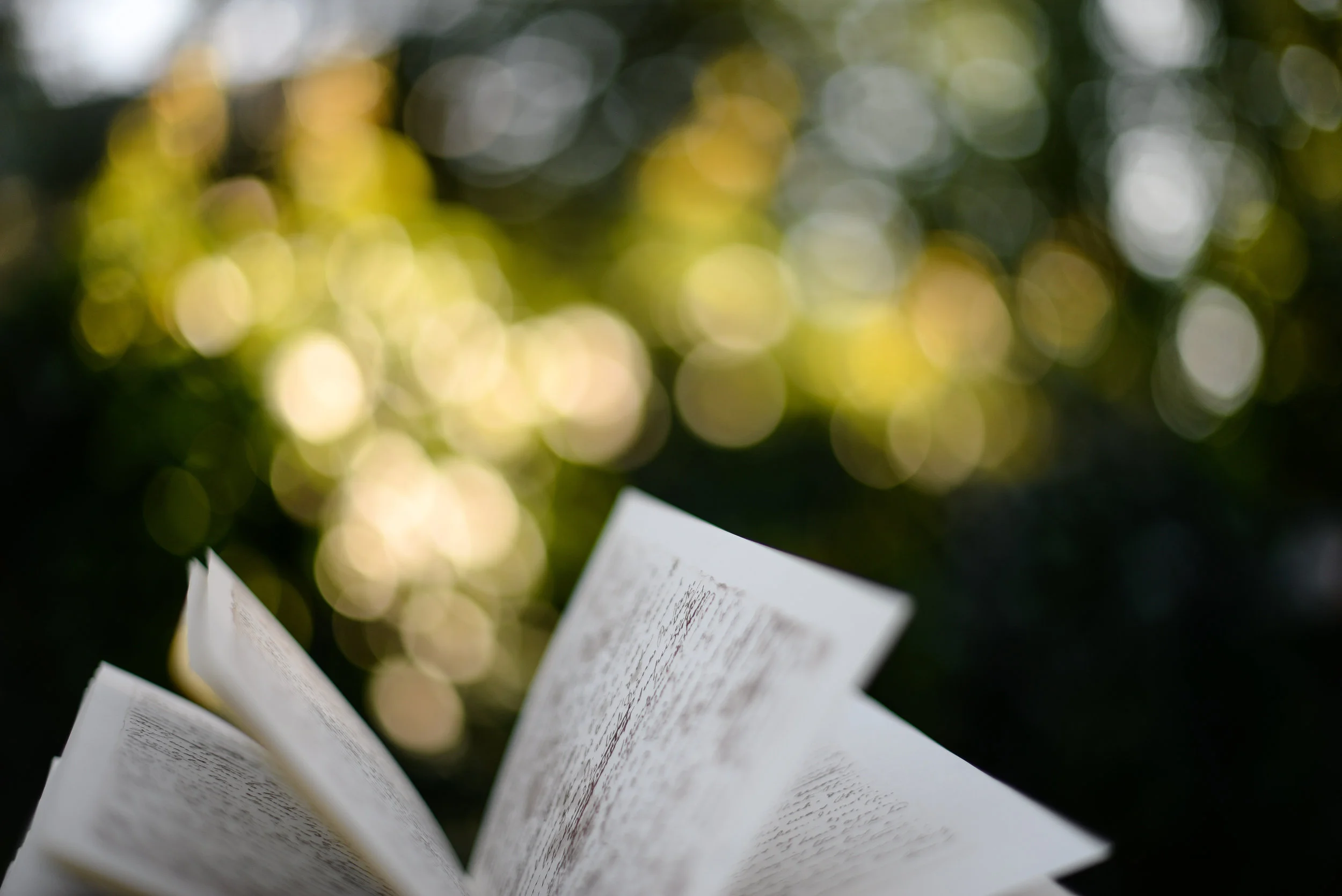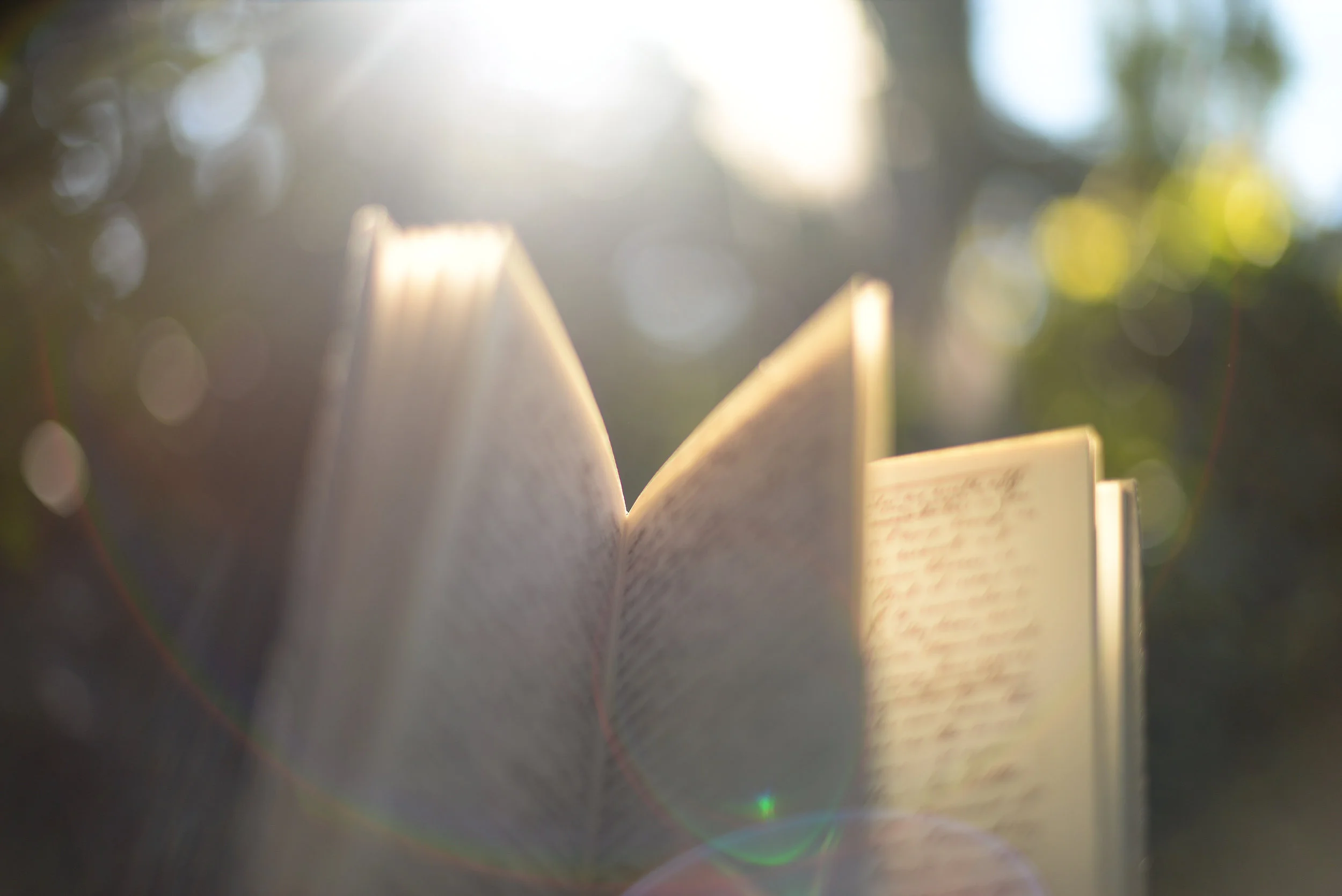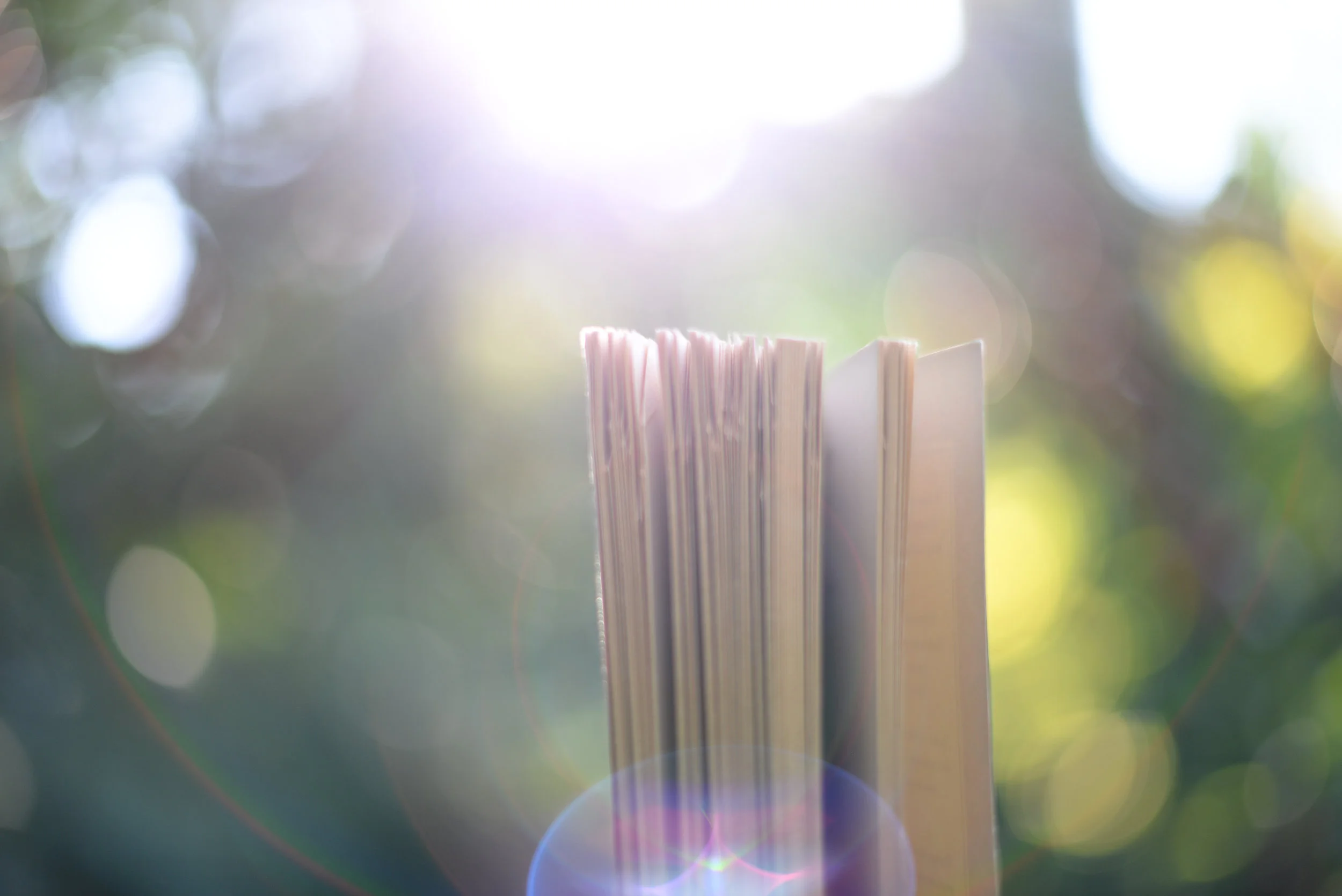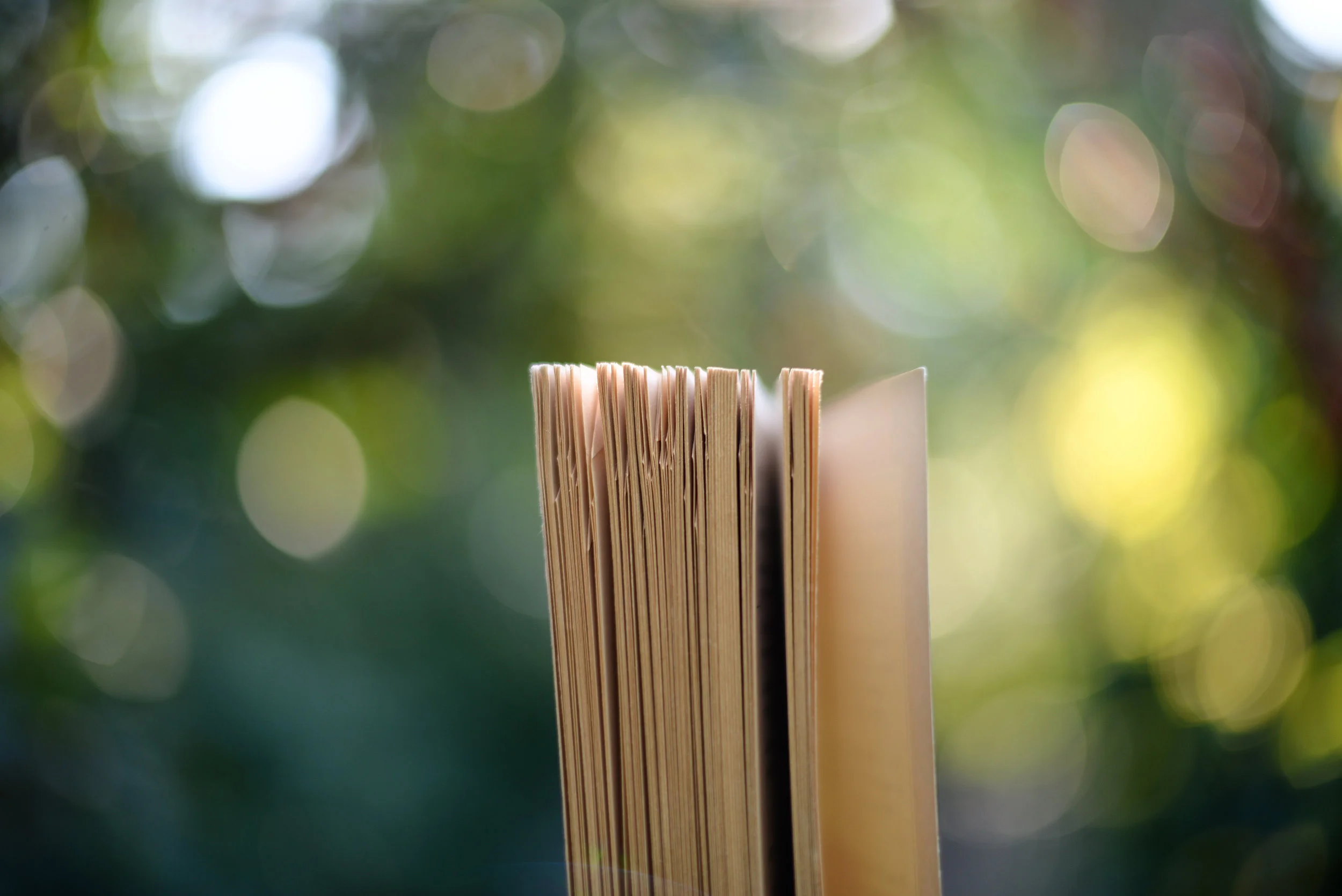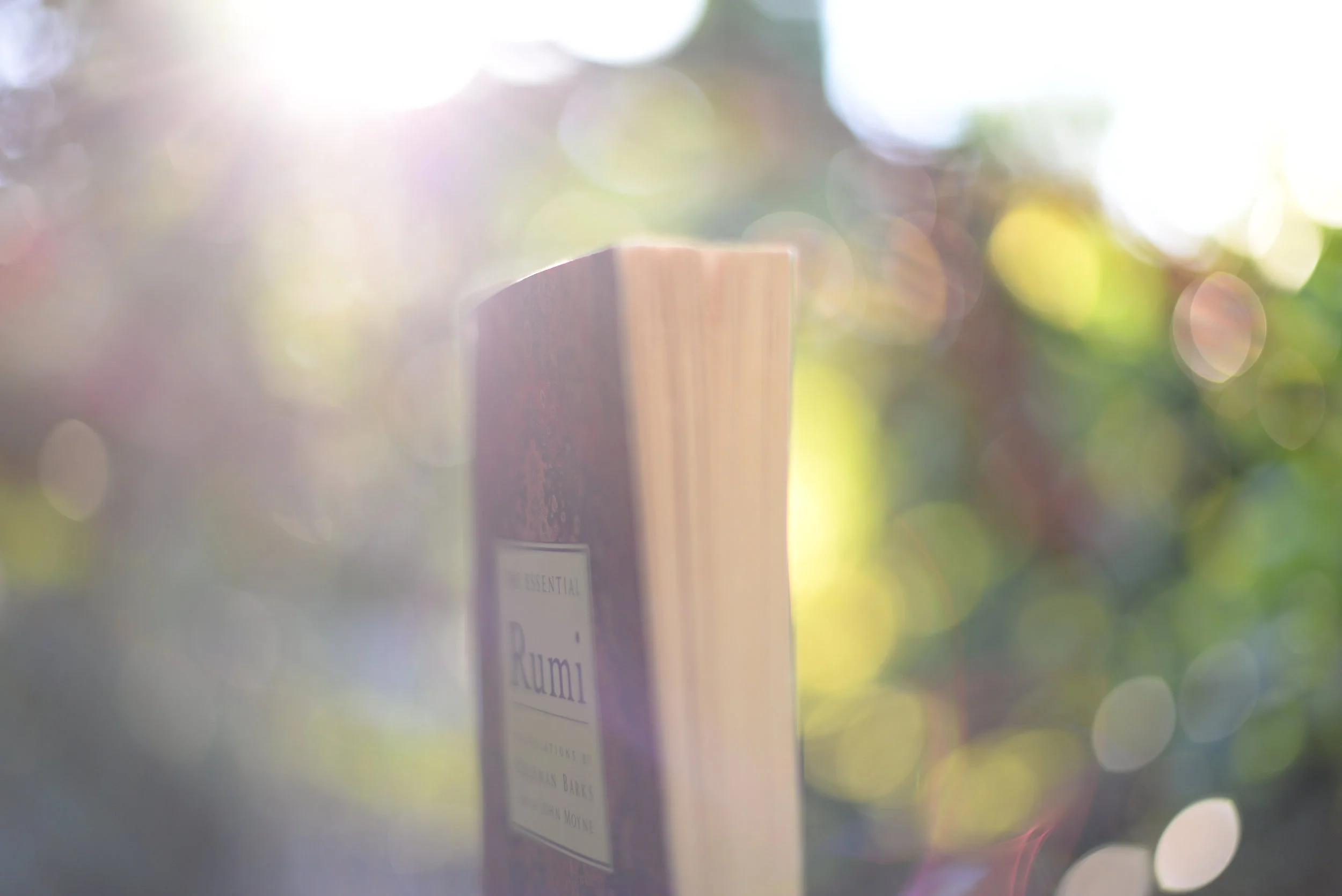The Idyllic Writing Life
As I sit down to write this post, one of our neighbours has begun sawing things with startling regularity. Oh, and now someone else begins hammering. We're expected somewhere in a couple of hours, and much of the rest of my next two days is spoken for, so I'll write now, or not at all. I try to keep early mornings for my so-called 'real' writing, but I would say that 50 percent of the time, something happens to interrupt the flow then, too.
The writing life is very rarely a glamorous one, that much I know. The energy it takes to carve out an idyllic hour or two a day is overwhelming, and because of that, some days, there are no idyllic hours. These are terrible days. And I try to salvage the terrible days by reading something beautiful before bed, or watching a good movie or show when I'm too tired to do much else.
Because it is so difficult to carve out that magical time and space in which to write, there's a lot of pressure when one is finally sitting there. I like the following passage from a recent book of prose by the Polish poet Adam Zagajewski titled, Slight Exaggeration:
"To write – on the best days writing, energetic, joyful, comes close to creating your own self, it gives an extraordinary sense of mastery over your own life, you define yourself anew, as if almost nothing before were worth recognizing, as if you were charting a new future. On worse days it's a battle with depression. On the bleakest days you just try to save yourself. What remains of the great projects from the good days? They dissipate into space. The tremendous plans, the expansive hopes from these moments when everything starts afresh, all quickly deflate, leaving you to protect your abruptly diminished realm in despair. It's as if a great ruler, the master of a vast empire, suddenly found himself defending a tiny, provincial fortress with minimal stores of water and food; it can't hold out for long...Unless the wonderful days return and the tremendous plans shape your imagination once again. The writer, the poet, is insignificant in this endless cycle of expansion and contraction, enthusiasm and aversion."
“On worse days it’s a battle with depression. On the bleakest days you just try to save yourself.”
We writers take our idyllic space seriously, but we know how ridiculous it is, too. The entire writing life is ridiculous. Only when I'm writing am I truly myself. Half of our life is spent acting. In my day job I pretend to be an extrovert. When I'm asked to give readings, or when I launch a book, I attempt to act like an Author, like someone who knows how to speak out loud before a crowd of people. Most writers have a handful (or two) of stories about readings gone wrong, or workshops that failed utterly. Public appearances that went sideways. Various small humiliations. And then there are the stories of the effects of all our anxieties over bad reviews, difficulty getting published, awful rejections, being ignored. That's usually a long hushed conversation over a number of drinks in a dark corner of a bar or greasy diner. The question hovers: should I give this up?
In her notebooks which appear at the end of her book of poems translated into English, Astonishments, Anna Kamienska says,
"Perhaps my task as a poet is to describe the landscape of loneliness."
She writes,
"I don't write poems any more. For this you need to have at least a splinter of hope."
And yet somehow reading about this lack of a splinter of hope has a way of giving those of us who write in small intervals and in scraped out bits of time, hope. For there she is writing. And we are not so alone.
In The Book of Disquiet, Fernando Pessoa says,
"We may know that the work we continue to put off doing will be bad. Worse, however, is the work we never do. A work that's finished is at least finished. It may be poor, but it exists..."
In the end, I think this might be the best writing advice I've ever read, the best words of motivation. When you're chatting with your work in progress, say to it this: you may be poor, but you, little lamb, you exist.
The conditions to produce this poor sad duck of a work are hard to come by and rarely idyllic. They are bought by hours of loneliness, dark bouts of depression. One might give up friendships, forsake family. Certainly one becomes more eccentric, potentially more unforgiving. One reads an essay by Mary Oliver and thinks, oh sure, it must be nice to skip out on obligations. Yes, yes, we see her point, and we love her for it, but for most of us there are clouds of obligations, reams of them, they multiply, they are thick, and they pay our clamorous, abundant, horrid little bills.
In the Zagajewski book he tells a story that rings true. The scene is beautifully evoked. Seven or so poets at a poetry festival are asked to take a bow on a grand stage after the performance. They rise and bow, "not as gracefully as actors, they've had no practice, they don't know how." The applause goes on and on, there's an ovation. "The happy poets bow and bow again." Later, he finds out that the poets had stood in the wrong place, "too far forward, where the curtain was supposed to drop..." and so the audience had had no choice but to go on clapping.
Minor humiliations. Funny ones. Poignant, too.
We must laugh at ourselves.
But the answer to the question – should I give this up? – it's always no.
Which is somehow also funny, it's absurd really, and it doesn't add up, but it's worth it for those rare idyllic moments. For those moments when you become, in Mary Oliver's words, "stained by light." Anna Kamienska calls poems, "laborious astonishments" and speaks of the hell of unwritten poems. She also says this:
“Joy – it’s not just a gift. In a sense, it’s also a duty, a task to fulfill. Courage. ”

